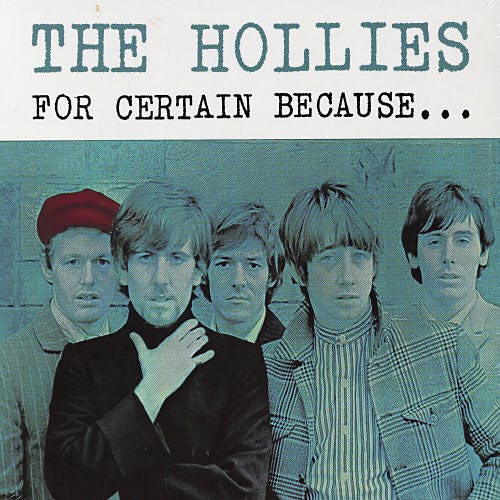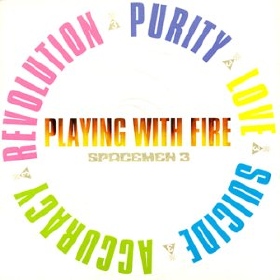
Quality: 4.5 out of 5
Trip-O-Meter: 4.75 out of 5
Forged Prescription is sort of an outtakes collection, with the core of the set focusing on alternate versions and mixes of the Perfect Prescription album. Typically outtakes suggest lesser or unfinished versions of songs. Here, however, we find the tracks adorned with additional production and coming across as arguable trippier. Supposedly the band did not issue these versions in the first place because they couldn't reproduce these versions live. Considering the fact that these guys haven't played a concert for more than 15 years, I now consider this version of the album to be almost definitive (in fact, I'll be skipping the Perfect Prescription for now as my disc is at my parents' house- unless someone wants to help me out with some mp3s).
Within the space of a year, Jason Pierce and Sonic Boom seemed to have sharpened their vision considerably, and this album is the Spacemen 3 sound in full blossom. Whereas Sound Of Confusion had a very dark edge to it, Forged Prescriptions is much more friendly and accessible album. These guys still come across as junkies as titles like "Come Down Easy," "Feel So Good," and "Call The Doctor" do little to refute, but the sound is far more textured and bright. It's sort of the reverse of the Velvet Underground's "Heroin." That song had a harrowing musical edge combined with lyrics about the ecstasy of drugs. Here, the lyrics are quite self abusing while the songs themselves float above the surface of the waters. Maybe Nancy Reagan's "just say no" crusade had at least a subliminal effect on Pierce and Sonic Boom.
The original album did have a superior sequencing documenting a blissful narcotic trip taking a eventual severe shift down (the album ends with "Call The Doctor," but it wouldn't be too difficult to resequence the tracks. I'd also replace the still good demo of "Come Down Easy" with the slicker produced version hanging out on disc two.
At this point, Boom and Pierce were still working together pretty well, giving the album a great unity. After the pounding fury of "Thing's Never Be The Same," starting off the album here in a far more swirling and intense mix, the album becomes quite a bit more chilled out, juxtaposing cloudy atmospheres with some wasted white boy blues.
The strange centerpiece of the album in my mind is the peak trip duo of "Transparent Radiation" and "Ecstasy Symphony" (unfortunately separated here; make sure to stick them back together). "Transparent Radiation" is a Red Crayola cover, although I consider Spacemen 3's take definitive. The band distills the Red Crayola's phased chaos for a truly interstellar atmosphere. "Ecstasy Symphony" takes it one step further, bringing the pulsing sound into an extended instrumental exploration of psychedelic bliss.
Among the extra tracks here are some also nice covers of Sun Ra's "Starship," and Rock Erickson's "We Sell Soul," which was originally played by Erickson's first band, The Spades. They aren't quite as inspired as "Transparent Radiation," but they are still quite successful. WE also get a few 'virtual' covers. "Ode To Street Hassle" is an original song, but as is apparent from the title, they are clearly attempting to channel. They also go for Reed on the Velvet Underground referencing "Velvet Jam," and "Soul 1," which always makes me think of the Velvet's "Booker T" jam. These last two tracks are more of instrumental noodlings, not in league with the A-list material, but still enjoyable.
My only real complaint here is the submersion of The Perfect Prescription album opener, "take Me To The Other Side." I guess they didn't have an alternate for this stellar track- it only appears in demo version on disc 2.
Although not a 'proper' album, Forged Prescriptions is Spacemen 3 at their best. They'd continue to make some great music after this period, but the personal and working relationship between Pierce and Sonic Boom would severely fracture after this. Here we get a unified Spacemen 3 at the top of their game.
Buy Me:
Spacemen 3 - 1987 - Forged Prescriptions
 Quality: 3.25 out of 5
Quality: 3.25 out of 5












